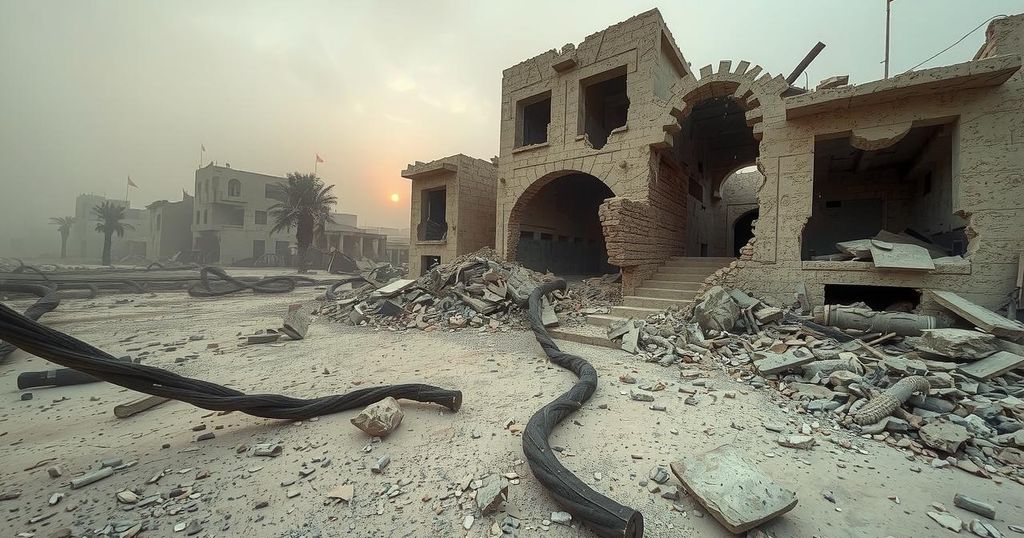On Monday, South Sudan’s government confirmed the deployment of Ugandan military forces, reversing earlier denials. Information Minister Michael Makuei stated the UPDF is present under a bilateral security agreement aimed at addressing threats. The announcement follows Uganda’s admission of deployment for President Kiir’s protection amid rising insecurity. Makuei emphasized the legality and mutual defense aspects of the agreement while warning militias in the region, particularly the White Army, about military action.
On Monday, the government of South Sudan officially acknowledged the presence of the Ugandan People’s Defence Forces (UPDF) within its borders. This admission came after previous denials and was justified by citing an enduring security pact aimed at addressing various threats. Michael Makuei Lueth, the Information Minister, confirmed that UPDF’s units are currently deployed in support roles, under an agreement that originated to combat the Lord’s Resistance Army (LRA).
This announcement follows Uganda’s military’s public admission of its deployment in Juba for the protection of President Salva Kiir, amidst increasing security concerns. The return of UPDF raises memories of Uganda’s controversial military involvement in South Sudan from 2013 to 2016, which attracted significant international attention. Makuei stated that such arrangements are common globally and likened the current deployment to historical U.S. military operations targeting the LRA in South Sudan.
The Information Minister characterized UPDF’s role as one of assistance to the South Sudan People’s Defence Forces (SSPDF), emphasizing the mutual defense commitment to protect citizens and maintain territorial integrity. He dismissed any criticisms of the deployment as unjustified.
Additionally, Makuei addressed the recent resolution by the Intergovernmental Authority on Development (IGAD) concerning the release of detained associates of First Vice President Dr. Riek Machar, emphasizing that investigations would follow regarding any individuals stripped of immunity. While he assured the release of innocent individuals, he warned that those found guilty would be prosecuted.
Regarding security in the Upper Nile State, Makuei issued a warning to the White Army militia affiliated with Machar’s Sudan People’s Liberation Army-in-Opposition (SPLA-IO), demanding their withdrawal from Nasir County. He accused the group of fostering instability in the region for decades and hinted at military intervention if the militia did not vacate. He further announced ongoing government airstrikes targeting armed elements in Nasir, asserting that civilians unwilling to leave military zones would face consequences.
The White Army, which played a significant role during past conflicts, including the civil war that erupted in 2013, has yet to respond to the government’s statements. Currently, South Sudan remains in a delicate state, grappling with the fragile peace established by the 2018 accord between President Salva Kiir and First Vice President Riek Machar.
In conclusion, South Sudan’s official acceptance of Ugandan military presence signifies an essential aspect of its ongoing security strategy amidst instability. The acknowledgment aligns with a historical security agreement aimed at combating regional threats. Furthermore, the government’s firm stance towards internal conflicts and militias underscores the precarious situation in South Sudan, as it works to uphold a fragile peace.
Original Source: www.radiotamazuj.org




